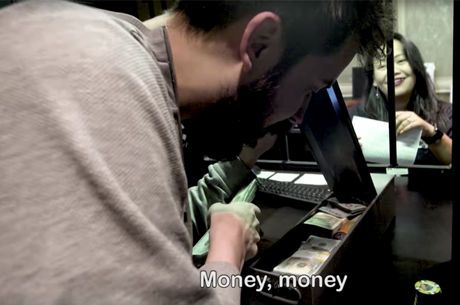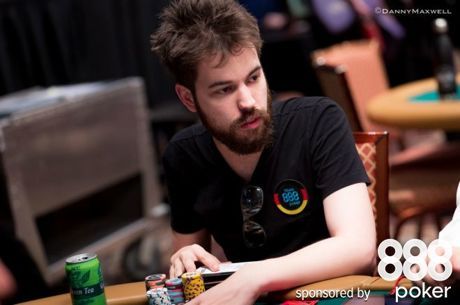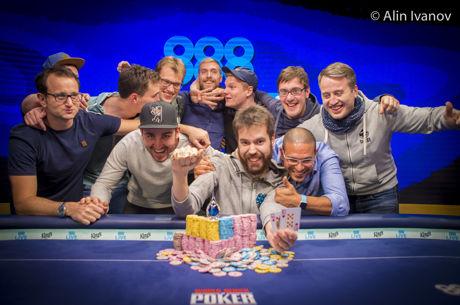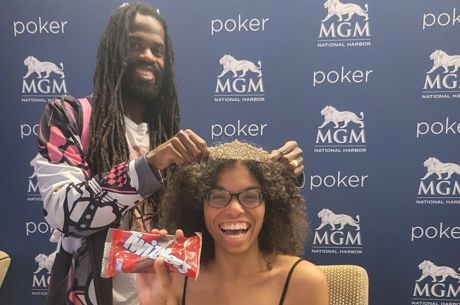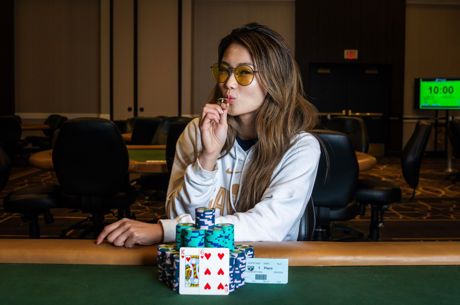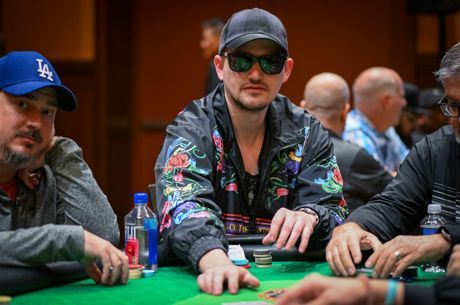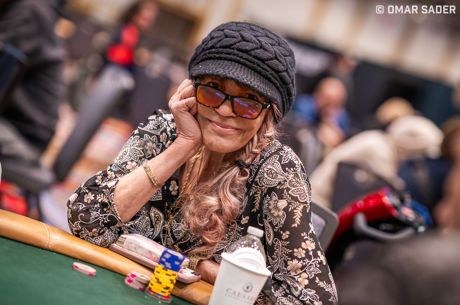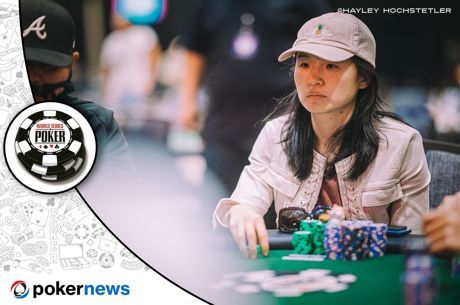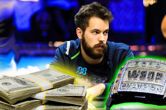Dominik Nitsche - Behind the Super High Roller Scene
Dominik Nitsche has an enviable record in poker tournaments. The German started as an online player but is now considered one of the most successful live tournament players in the world. He��s won four World Series of Poker bracelets, including the 2017 WSOPE High Roller for One Drop event, which cost �111,111 to enter and won him just under �3.5 million.
Last December, he entered the $300,000 Super High Roller Bowl that was eventually won by Isaac Haxton for $3,672,000. Nitsche was followed by a camera crew to tape his progress and give poker fans a unique insight into the world of the Super High Rollers.
After a number of years honing his skills, Nitsche now really prefers to play these high roller tournaments. He sat down with us to tell us why.
��The buy-in is high, and the competition is good. Some of the best players in the world play them, so they��re what I enjoy playing.��
��They��re the most fun and the most profitable,�� says Nitsche, ��The buy-in is high, and the competition is good. Some of the best players in the world play them, so they��re what I enjoy playing.��
Nitsche built his reputation playing games of all levels and has won two of his WSOP bracelets in $1,000-entry events. He considers that kind of tournament a great way to make money but admits that the challenge of playing at the stakes he now does is what fuels his passion for poker.
��At the highest level, the nuances of the game are so much more interesting. At the low stakes, you can play a basic strategy and be a really big winner.��
Why swap that for the nosebleed mistakes, then? Surely its counter-intuitive for someone operating as a professional.
��From a job perspective, it looks silly - you��re making your own life incredibly hard. But even at the highest level, you find people making mistakes.��
No high roller tournament is going to be easy, and Nitsche acknowledges the challenge of $100k buy-in events, despite declaring them ��beatable.�� Part of the appeal for him is in the company he keeps in the rarefied atmosphere of the elite level.
��We all respect each other, and pretty much all of us are friends. If you��re playing against the same people over and over again, you really get to know them and build up a relationship. You compete for a lot of money, but it��s never too serious because of the luck element in poker.��
Nitsche goes against popular declarations in the modern game, with positivity abounding not just in the words of our most recognized professional trailblazers, but in marketing. The aspirational element of everyone being able to win goes against Nitsche��s mindset - that he goes into every tournament expecting to lose.
��Quite honestly, why would you get upset if you lose? To me, that never made sense.��
��Quite honestly, why would you get upset if you lose? To me, that never made sense. The truth is that losing happens so much more often. As a tournament player, you basically lose, lose, lose all the time... then you win.��
Does that make it harder to deal with victory than defeat? And if so, just how odd is that? This is the mental landscape needed to succeed at poker when the stakes are so high and the players so skilled.
��The win feels so nice that it��s harder not to let it affect you! Losing is the thing you��re used to. You just buy into the next one. If you buy in, then you��re supposed to lose the tournament. You buy into the tournament, you get your chips, and you��re supposed to lose. But you hope to win.��
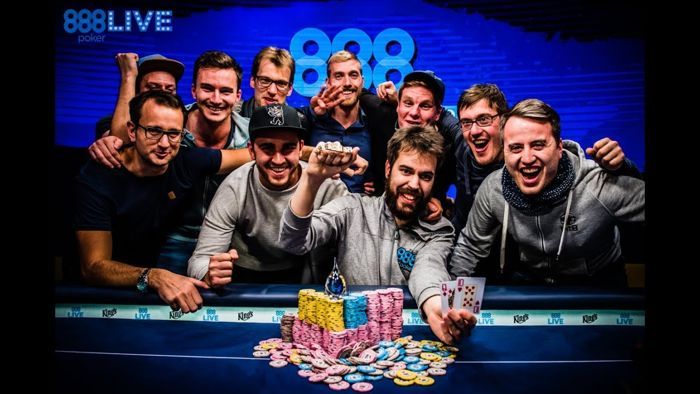
That attitude is working. Nitsche has won some big tournaments, recently too, but none compare to the One Drop in 2017 when he banked almost �3.5 million.
��When I won One Drop, it felt surreal. I was very happy that I won such a big one - it��s not supposed to happen! To not let that affect you in the next tournament is harder than busting a $100k event and then walk over to play the $2k. You don��t buy into the tournament and expect to win.��
Nitsche loves playing the game perhaps more than he enjoys winning at the game. He talks about wanting to be at the table as long as possible, and how much fun just making the final table is, purely because he gets to ��keep playing, keep competing.�� That enjoyment of poker extends to his role as an 888poker ambassador, whatever the tournament.
��The atmosphere is very friendly, and I love hanging out with those guys. I feel like it targets the fun recreational player. I was in London recently for the 888poker Live festival. I��m just there to have a fun time!��
��The beauty of exploiting your opponent in that way is that it��s so difficult. Everyone I play against works extremely hard.��
When he��s not at the felt, Nitsche is hard at work behind the scenes, crunching the numbers. He considers in-tournament disciplines, such as a regular sleep schedule, eating properly or arriving early for a festival as almost unimportant (��They help maybe a tiny, tiny bit. I��m not superstitious, it��s just not the way I can think.��). But at home, at his computer, he is relentless in seeking ways to improve.
��I pick a situation; for example button against big blind for twenty big blinds. I��ve made my preparations with the current tools and made my pre-flop strategy. Then I spend a bit of time trying to memorize that before going into the post-flop stuff. I��ll work all the scenarios, looking at the strategy for both players.��
For Nitsche, it��s all about the toil he��s prepared to put in over time, and the amount of dedication at his level is what separates him from players who can��t find the motivation to put in the level of work required. In his opinion, anyone can do that. He advises anyone of any level to do the same.
��Ask yourself different questions about changes to the hand or the amount of chips. Keep making small changes and deciding what the best strategy is each time. By making tiny changes in the hand you��ve created for yourself, you can discover so many things so quickly.��
Nitsche��s love of the high rollers isn��t restricted to the toughest fields. He loves the way they can change ��almost instantly�� so close to the close of registration, with the value of his seat going up too. But the standard is often so tough that weaknesses he identifies in players at the table can rarely be exploited.
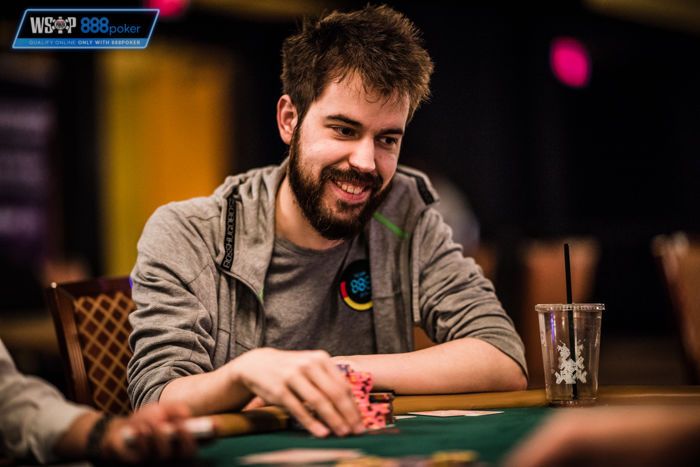
��You��re not going to be able to use it, because they bust, you move, or something else happens. You want to attack it, but you most likely won��t get a chance. The next time this spot comes up, they might have fixed it.��
Isn��t that a mental challenge? Never getting to make the most of an intelligent perception of a mistake when there are so few going on?
��The beauty of exploiting your opponent in that way is that it��s so difficult. Everyone I play against works extremely hard. You can see it, after the hand they make a note, and you know they won��t make that mistake again. It��s so tough.��
That��s the thrill of the super high rollers for Nitsche, and many of his contemporaries. It��s an impossible conundrum for super-intelligent people to try to figure out before the puzzle changes shape.
��The best player is the one who makes the fewest mistakes. Every mistake you take out of your game makes you better. If you keep your mind open for other eventual weakness. In any situation, if you make a mistake and then try not to make that mistake next time, you��re doing great. You see a mistake, great! Then you better fix it.��
��The only problem is if you don��t notice your own mistakes and keep making them.��
Nitsche��s ability to work from negative scenarios to become a better player is a strategy that has reaped rewards: $18 million in tournament winnings alone and he doesn��t turn 30 until next year.
��The only problem is if you don��t notice your own mistakes and keep making them. There are coaches, programs, training sites; there��s anything you want to be. In order to get good at poker: find your mistakes, because every weakness you eliminate from your game makes you harder to play against.��
Dominik Nitsche becomes a tougher opponent for his peers every year, and he��s only going up the stakes. His participation will never be defined by winning or losing, but that��s exactly why the 888poker ambassador wins so often - his love of the game keeps him at the table.

